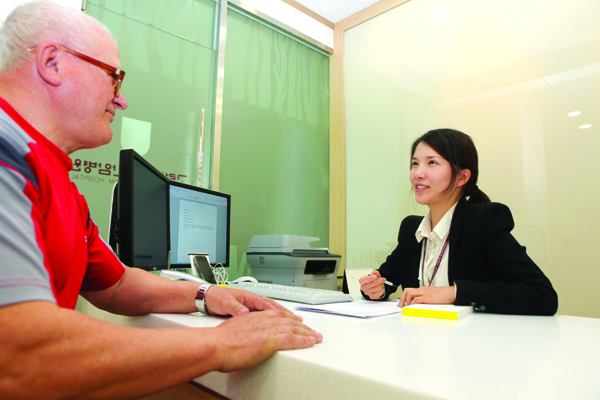
The Korean government said it would attract 700,000 foreign patients by 2027, a 180 percent boost from about 250,000 in 2022, to increase medical services exports.
To do so, it will revise immigration procedures and expand the scope of services for foreign patients from cosmetics/plastic surgery to serious/complex diseases and Oriental medicine, it said.
The Ministry of Health and Welfare said it reported these plans at a meeting of the Service Industry Development Task Force (TF), chaired by Economy and Finance Minister Choo Kyung-ho, on Monday.
More specifically, to revitalize medical service exports by attracting foreign patients, the government will improve immigration procedures, reduce regional differences in medical services, and raise global awareness of Korean healthcare, the health and welfare ministry said.
Under the plan, hospital-level medical institutions with more than 300 beds will receive extra points if they apply for the designation as “an excellent host institution by the Ministry of Justice,” which has the right to apply for an e-visa.
The government will expand the scope of caregivers and guardians of foreign patients from spouses and immediate family members to siblings and ease the documentation requirements for companions.
To alleviate regional differences in medical services and prevent crowding only in certain departments, the government will make efforts to increase the number of foreign patients not only in plastic surgery and dermatology but severe and complex diseases and Oriental medicine.
In addition, to strengthen the competitiveness of the overseas patient attraction industry, the government will replace the evaluation “designation” system for host medical institutions with an evaluation “certification” system to simplify the process.
For pre-management and post-management of foreign patients, the government will expand ICT-based pre-consultation and post-management support projects and institutionalize telemedicine.
Currently, Korea allows telemedicine for overseas patients only through remote consultations between doctors.
However, the government said it would revise the “Act on Supporting Overseas Expansion of Medical Services” so that Korean physicians can provide telehealth for patients in other countries.
To help Korean medical institutions expand overseas, the government plans to amend the same law to include consulting firms, dispatched healthcare workers, and medical institutions that export the hospital operation system to the list of medical institutions required for reporting.
This will not only allow Korean medical institutions to go abroad but dispatch physicians to overseas hospitals and export Korean medical systems.
Related articles
- Korea goes all out to attract foreign patients
- Super Junior’s Ryeowook appointed as Honorary Ambassador at Medical Korea 2023
- Health ministry receives applications for hospitals to treat foreign patients
- ‘Hospitals luring foreign patients have few benefits and many obligations'
- Doctor Hunter to bridge medical tourism gaps between Korea and CIS region
- ‘Korea needs to get UAE patients back to pre-Covid-19 level’

